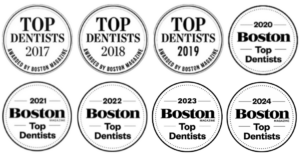
Why See an Emergency Dentist for Facial Swelling?
If you suffer from a swollen face, dental care likely isn’t your first thought. You may imagine you’ll need care from a local skin doctor. Still, the truth is that you should see an emergency dentist for facial swelling matters. They can often treat the issue as easily as they would mouth pain or oral infections. As for how and why that’s the case, trust your Newton dentist to explain in this helpful summary.





